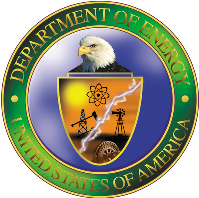
In just six days over the holiday weekend, we got 131 groups signed on to a letter to Department of Energy, opposing billions in renewable energy subsidies from benefiting incineration, biomass and biofuels.
It included about 100 grassroots or state/regional groups from 27 states plus DC and Puerto Rico as well as about 30 national / international groups, including some of the big greens: Clean Water Action, Earthjustice, Food & Water Watch, Friends of the Earth, Greenpeace USA and Sierra Club.
Find the final sign-on letter, with links to all of the groups' websites, here:
http://www.energyjustice.net/files/1703signon.pdf
The letter points out that the law requires these renewable energy loan guarantees to be for technologies that reduce, avoid or sequester greenhouse gases. However, the incinerator technologies they're considering at the worst greenhouse gas emitters of all: worse than coal!
Other letters sent in by allied groups are linked from this article:
http://www.cleanairwatch.org/2014/05/son-of-solyndra-green-groups-see-re...
Here's our first media coverage:
Amanda Peterka, E&E reporter
Published: Wednesday, May 28, 2014
The Department of Energy risks undermining the goals of its renewable energy loan guarantee program by including waste-to-energy technologies, environmentalists warned yesterday.
Environmentalists urged DOE to drop such technologies, particularly those involving garbage incineration, from its list of eligible projects in the loan guarantee program.
Burning garbage to produce electricity leads to increased man-made greenhouse gas emissions that contribute to climate change, the environmental groups said in three separate letters to the department.
"We should not be targeting our taxpayer backed federal loan guarantees to prop up polluting, dangerous and inefficient technologies," wrote a coalition of environmentalists that includes the Natural Resources Defense Council and several Mid-Atlantic-based groups.
DOE last month announced it would make available up to $4 billion in loan support for renewable energy and efficiency projects ( Greenwire, April 16). Included among the eligible projects are waste-to-energy projects, a broad category that encompasses several different technologies.
In announcing the reopening of the program, Energy Secretary Ernest Moniz highlighted waste-to-energy as one of five technology areas that are high priorities for DOE. The department opened a 30-day comment period before it will finalize and begin accepting applications into the program.
Several companies are pursuing the conversion of municipal solid waste both to energy and to fuel. A 2009 study by U.S. EPA and North Carolina State University found that greenhouse gas emissions from landfills are two to six times higher than those generated from plants that burn waste, per unit of electricity generated.
But the environmental groups say that claims that incineration technologies emit less greenhouse gas emissions than landfills are based on "false assumptions." They also said that garbage incinerators emit more mercury, heavy metals and other air pollutants than coal-fired power plants.
A broader coalition of environmental groups arrayed under the Energy Justice Network also charged that incineration projects were "baby Solyndras," referring to the solar energy company that received hefty loans from DOE before going bankrupt in 2011.
"Incinerators are also the most expensive way to manage waste," wrote the network, which includes the Sierra Club, Earthjustice and other major national environmental groups. "DOE should look critically at these baby Solyndra proposals, since the loan program requires a reasonable prospect of repayment that this industry cannot reasonably expect to provide."
The national groups say they also oppose other technologies that involve converting biomass into energy and fuel, and urged that DOE exclude "most, if not all, biofuels projects" from eligibility.
A recent report by the Partnership for Policy Integrity slammed biomass energy as the "new coal," charging that it contributed to air pollution and carbon dioxide emissions ( Greenwire, April 2).
The biomass industry says that its product is a clean and renewable source of energy.
"Our industry uses residuals from forest maintenance as well as wood already used for other purposes like construction," Biomass Power Association Bob Cleaves said in a recent statement. "These materials have no other use; they would otherwise decompose either in landfills, emitting the harmful methane gas, or on a forest floor where they would provide kindling to wildfires."
